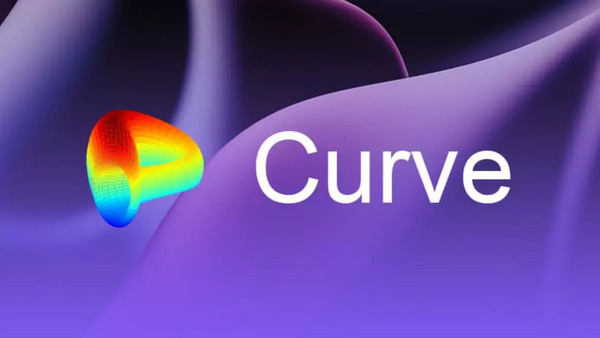-
 Bitcoin
Bitcoin $83,581.5964
-1.31% -
 Ethereum
Ethereum $1,827.0061
-2.95% -
 Tether USDt
Tether USDt $0.9998
0.00% -
 XRP
XRP $2.0572
-2.12% -
 BNB
BNB $600.6352
-0.50% -
 Solana
Solana $120.4741
-3.43% -
 USDC
USDC $0.9998
0.00% -
 Dogecoin
Dogecoin $0.1664
-3.04% -
 Cardano
Cardano $0.6531
-2.78% -
 TRON
TRON $0.2370
-0.47% -
 Toncoin
Toncoin $3.7850
-5.03% -
 Chainlink
Chainlink $13.2476
-3.86% -
 UNUS SED LEO
UNUS SED LEO $9.3960
-0.18% -
 Stellar
Stellar $0.2662
-1.01% -
 Sui
Sui $2.4099
1.77% -
 Avalanche
Avalanche $18.7876
-2.88% -
 Shiba Inu
Shiba Inu $0.0...01237
-0.55% -
 Hedera
Hedera $0.1663
-0.15% -
 Polkadot
Polkadot $4.0579
-1.23% -
 Litecoin
Litecoin $83.8022
0.76% -
 MANTRA
MANTRA $6.3807
2.55% -
 Bitcoin Cash
Bitcoin Cash $304.1581
-0.61% -
 Bitget Token
Bitget Token $4.5514
-1.22% -
 Dai
Dai $1.0000
0.01% -
 Ethena USDe
Ethena USDe $0.9999
0.00% -
 Pi
Pi $0.6648
-3.97% -
 Hyperliquid
Hyperliquid $12.4497
-5.55% -
 Monero
Monero $214.6449
-2.17% -
 Uniswap
Uniswap $6.0261
-2.31% -
 Aptos
Aptos $5.2625
-0.45%
A brief introduction to how to buy CRV coins safely and reliably? Detailed tutorial on buying CRV coins
To safely acquire CRV tokens, choose a reputable exchange like OKX, Binance, or Coinbase, verify your identity, deposit funds, search for CRV, place a buy order, and securely store your tokens in a personal wallet or with the exchange.
Oct 23, 2024 at 10:42 am

How to Buy CRV Coins Safely and Reliably: A Comprehensive Guide
Step 1: Choose a Reliable Exchange
- OKX: A reputable and popular cryptocurrency exchange with a wide selection of digital assets.
- Binance: Another well-established platform with a vast selection of cryptocurrencies and advanced trading features.
- Coinbase: A user-friendly exchange ideal for beginners, offering a limited but reputable selection of cryptocurrencies.
Step 2: Create an Account
- Visit the website of your chosen exchange and click on "Sign Up" or "Create an Account."
- Enter your personal information (name, email, password) and complete the verification process (usually involves email or SMS confirmation).
Step 3: Fund Your Account
- Choose your preferred method of funding, such as bank transfer, credit/debit card, or third-party payment services.
- Follow the instructions provided by the exchange to deposit funds into your account.
Step 4: Search for CRV
- In the exchange's search bar, enter "CRV" and select Curve DAO Token.
- Verify the live price and trading volume to ensure you are buying the correct asset.
Step 5: Place a Buy Order
- Choose the type of order you want to place (market order, limit order, etc.).
- Specify the amount of CRV you wish to buy.
- Review the order details and confirm the transaction.
Step 6: Store Your CRV Securely
- Decide whether to store your CRV coins on the exchange or transfer them to a personal cryptocurrency wallet.
- If transferring to a wallet, follow the instructions provided by your exchange to send the funds.
- For enhanced security, consider using a hardware wallet or other cold storage solution.
Tips for Safe and Reliable CRV Purchases:
- Always use reputable exchanges with established security practices.
- Verify the authenticity of the exchange's website before entering any personal or financial information.
- Enable two-factor authentication (2FA) for added account protection.
- Store your CRV coins securely in a personal wallet with strong security measures.
- Monitor market trends and news to make informed decisions about your CRV investment.
Disclaimer:info@kdj.com
The information provided is not trading advice. kdj.com does not assume any responsibility for any investments made based on the information provided in this article. Cryptocurrencies are highly volatile and it is highly recommended that you invest with caution after thorough research!
If you believe that the content used on this website infringes your copyright, please contact us immediately (info@kdj.com) and we will delete it promptly.
- RUVI AI Revolutionizes AI Accessibility with Blockchain Power
- 2025-04-03 11:15:12
- Fidelity Investments Introduces an IRA That Permits Investors to Buy Bitcoin, Ether, and Litecoin
- 2025-04-03 11:15:12
- Whale Alert Detects a Large Bitcoin Transfer Involving 1050 BTC from Binance to an Unknown Wallet
- 2025-04-03 11:10:12
- Democratic Lawmakers Ask US Securities Regulator to Preserve Records of President Trump's Crypto Venture
- 2025-04-03 11:10:12
- Curve Finance Notches Record-Breaking Trading Volumes of Nearly $35 Billion in the First Quarter of 2025
- 2025-04-03 11:05:13
- Coinlist restarts US operations after five-year hiatus
- 2025-04-03 11:05:13
Related knowledge

What is Ethereum’s Slashing mechanism and how to punish malicious behavior?
Feb 20,2025 at 03:08am
Key PointsOverview of slashingDifferent types of slashing in EthereumIncentives and consequences of slashingIdentifying and reporting slashed validatorsOngoing discussions and potential improvementsEthereum's Slashing Mechanism: Punishing Malicious BehaviorEthereum's slashing mechanism is an essential tool for ensuring network security and punishing mal...

What is the verifier node of Ethereum and how to become a verifier?
Feb 19,2025 at 06:00pm
The Verifier Node of Ethereum: A Comprehensive GuideKey Points:What is a Verifier Node?How to Become a Verifier NodeResponsibilities and Rewards of a Verifier NodeMinimum Requirements for Becoming a Verifier NodePotential Difficulties in Running a Verifier Node1. What is a Verifier Node?A Verifier Node is an independent entity on the Ethereum network th...

What is Ethereum’s staking, and how to participate and earn money?
Feb 19,2025 at 04:37pm
Key Points:Understanding Ethereum's Staking MechanismSteps to Participate in StakingBenefits and Rewards of StakingSecurity and Risk ConsiderationsTechnical Requirements and Hardware OptionsPotential Challenges and Troubleshooting TipsFAQs on Ethereum StakingWhat is Ethereum's Staking?Proof-of-Stake (PoS) is a consensus mechanism used in blockchain netw...

What is Ethereum’s DAO (Decentralized Autonomous Organization) and how does it work?
Feb 20,2025 at 03:12am
Key PointsDefinition and Structure of a DAOGovernance and Decision-Making in DAOsBenefits and Use Cases of DAOsChallenges and Limitations of DAOsWhat is Ethereum's DAO (Decentralized Autonomous Organization) and How Does It Work?Definition and Structure of a DAOA Decentralized Autonomous Organization (DAO) is an innovative governance and management fram...

What is Ethereum's multi-signature wallet and how to improve security?
Feb 20,2025 at 02:18pm
Key Points:Understanding the Concept of a Multi-Signature WalletBenefits and Drawbacks of Multisig WalletsRequirements for Setting Up a Multisig WalletStep-by-Step Guide to Generating a Multisig WalletImplementing Strategies for Enhanced Security1. Understanding the Concept of a Multi-Signature WalletA multi-signature (multisig) wallet in the Ethereum e...

What is Ethereum's oracle and how to provide data for smart contracts?
Feb 21,2025 at 01:30am
Key Points:Understanding the concept of oracles in EthereumExploring different types of oraclesDetailed guide on how to provide data for smart contractsAddressing potential challenges and considerationsWhat is Ethereum's Oracle?Oracles are crucial components in the Ethereum ecosystem, enabling smart contracts to access real-world data and off-chain even...

What is Ethereum’s Slashing mechanism and how to punish malicious behavior?
Feb 20,2025 at 03:08am
Key PointsOverview of slashingDifferent types of slashing in EthereumIncentives and consequences of slashingIdentifying and reporting slashed validatorsOngoing discussions and potential improvementsEthereum's Slashing Mechanism: Punishing Malicious BehaviorEthereum's slashing mechanism is an essential tool for ensuring network security and punishing mal...

What is the verifier node of Ethereum and how to become a verifier?
Feb 19,2025 at 06:00pm
The Verifier Node of Ethereum: A Comprehensive GuideKey Points:What is a Verifier Node?How to Become a Verifier NodeResponsibilities and Rewards of a Verifier NodeMinimum Requirements for Becoming a Verifier NodePotential Difficulties in Running a Verifier Node1. What is a Verifier Node?A Verifier Node is an independent entity on the Ethereum network th...

What is Ethereum’s staking, and how to participate and earn money?
Feb 19,2025 at 04:37pm
Key Points:Understanding Ethereum's Staking MechanismSteps to Participate in StakingBenefits and Rewards of StakingSecurity and Risk ConsiderationsTechnical Requirements and Hardware OptionsPotential Challenges and Troubleshooting TipsFAQs on Ethereum StakingWhat is Ethereum's Staking?Proof-of-Stake (PoS) is a consensus mechanism used in blockchain netw...

What is Ethereum’s DAO (Decentralized Autonomous Organization) and how does it work?
Feb 20,2025 at 03:12am
Key PointsDefinition and Structure of a DAOGovernance and Decision-Making in DAOsBenefits and Use Cases of DAOsChallenges and Limitations of DAOsWhat is Ethereum's DAO (Decentralized Autonomous Organization) and How Does It Work?Definition and Structure of a DAOA Decentralized Autonomous Organization (DAO) is an innovative governance and management fram...

What is Ethereum's multi-signature wallet and how to improve security?
Feb 20,2025 at 02:18pm
Key Points:Understanding the Concept of a Multi-Signature WalletBenefits and Drawbacks of Multisig WalletsRequirements for Setting Up a Multisig WalletStep-by-Step Guide to Generating a Multisig WalletImplementing Strategies for Enhanced Security1. Understanding the Concept of a Multi-Signature WalletA multi-signature (multisig) wallet in the Ethereum e...

What is Ethereum's oracle and how to provide data for smart contracts?
Feb 21,2025 at 01:30am
Key Points:Understanding the concept of oracles in EthereumExploring different types of oraclesDetailed guide on how to provide data for smart contractsAddressing potential challenges and considerationsWhat is Ethereum's Oracle?Oracles are crucial components in the Ethereum ecosystem, enabling smart contracts to access real-world data and off-chain even...
See all articles
























































































